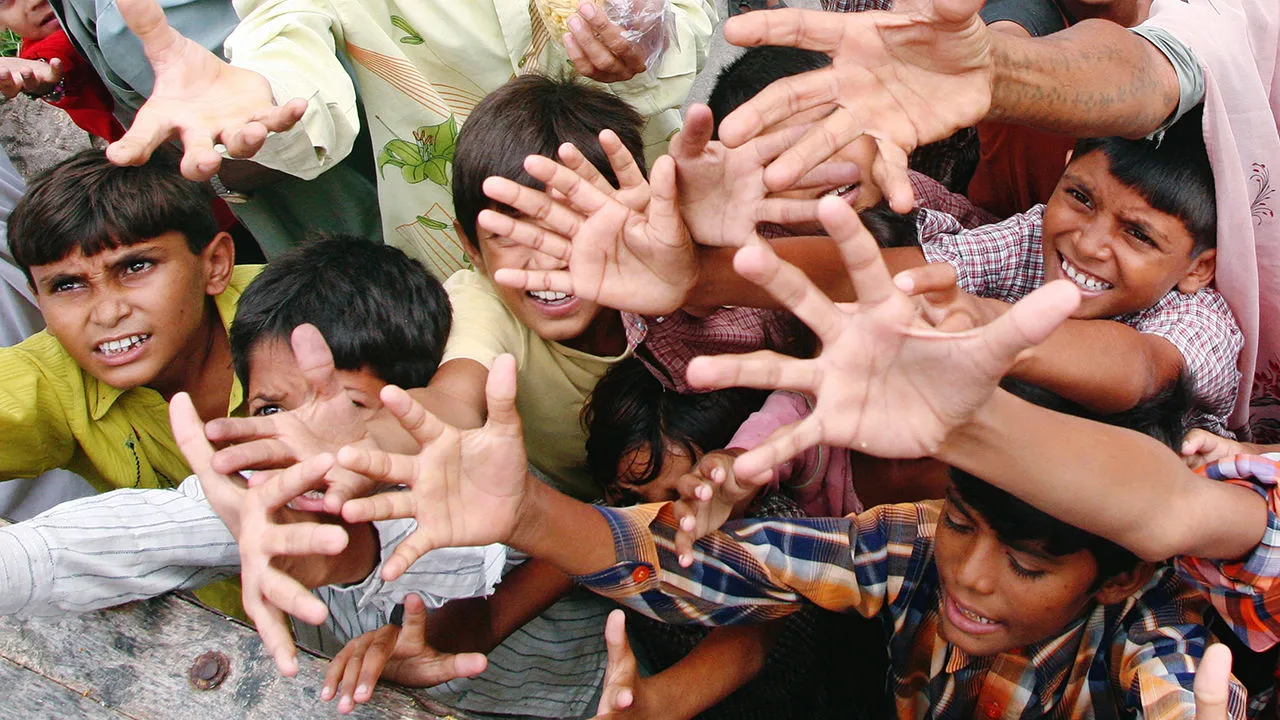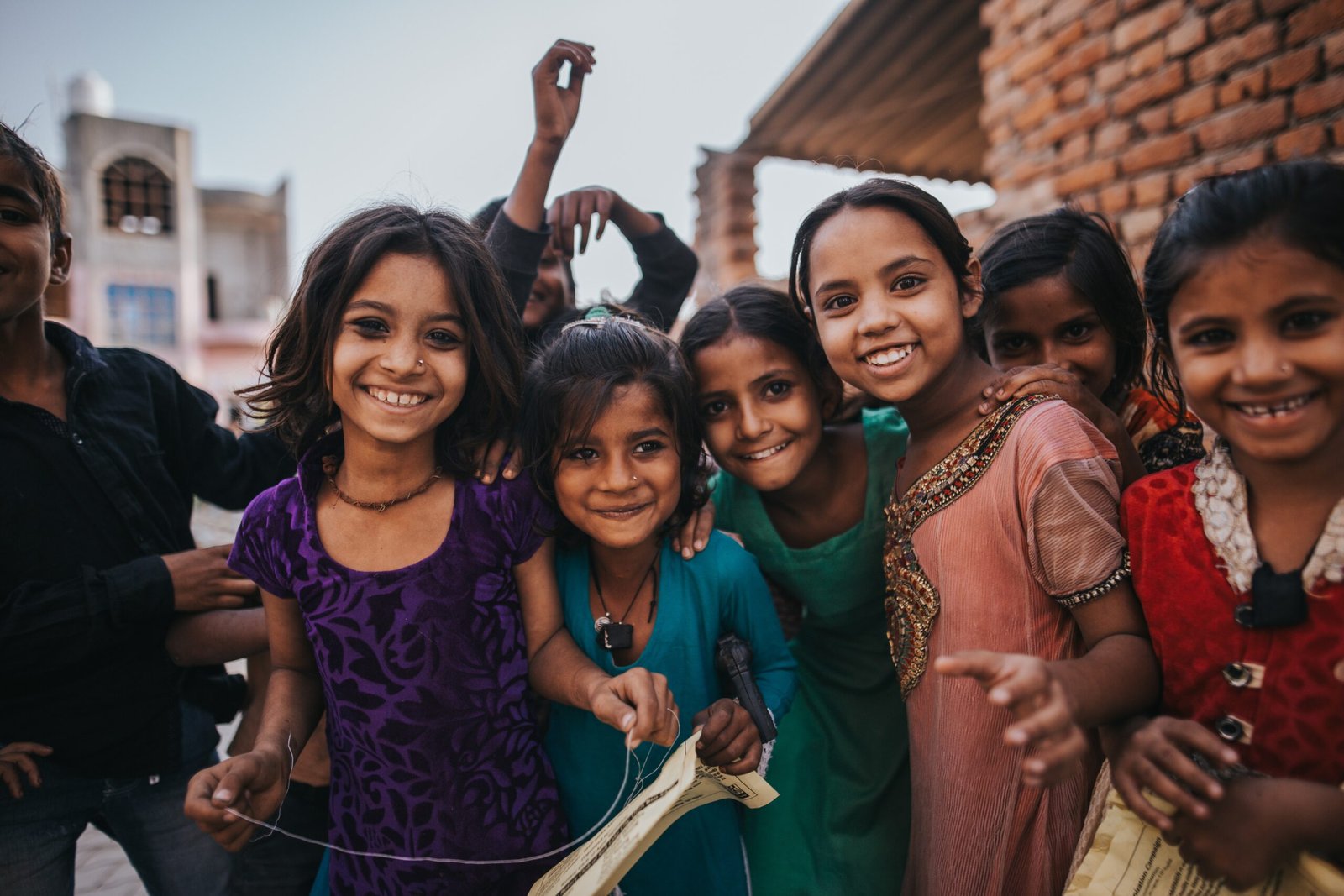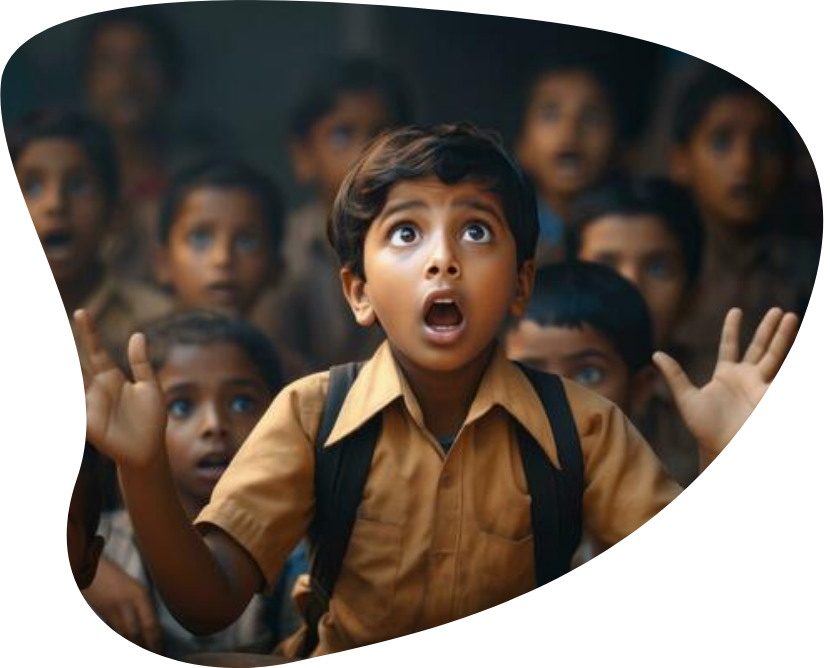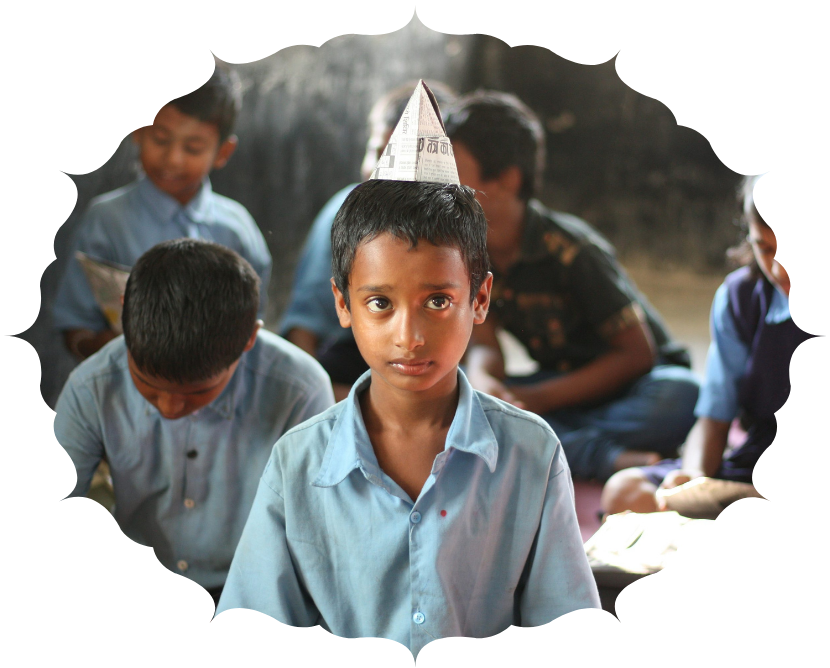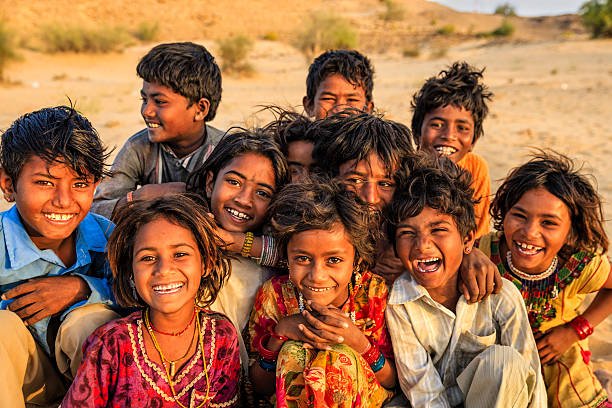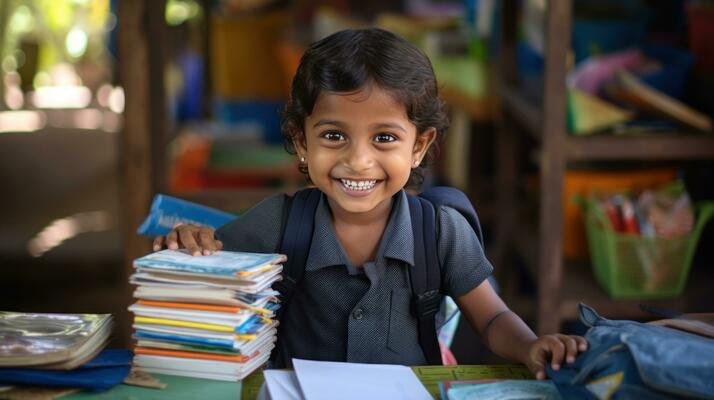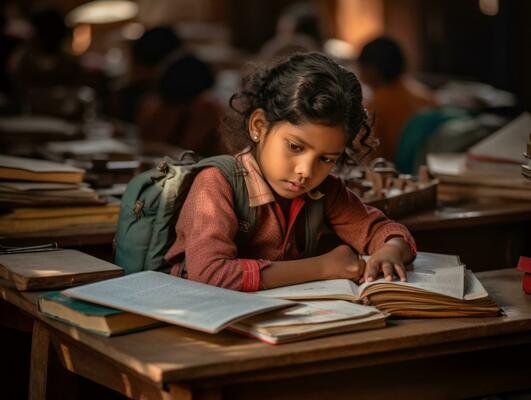- Home
- Child Education
Child Education
Child Education
Quick support proccess
Talk to an expert
011 35673230
Children represent 40% of India's population, totaling 472 million individuals
Nevertheless, a mere 2.46% of the Union Budget for 2021-22 was designated for the development and welfare of children. The National Plan of Action for Children advocates for budgetary allocations for children to reach 5% of the nation’s GDP; however, our allocations have remained unchanged at 0.43% of GDP over the past two years
Our Thoughts
- Empowering Minds, Transforming Lives
- Building Brighter Futures Through Education
- Education for All, Hope for Many
33 million
Children engage in labor rather than attending school
1 of 3 child
The brides from India are among the most notable in the world
2 of 3 child
Malnutrition is responsible for the deaths of children under the age of five
2 of 5 children
do not attain full immunization
500% increase
In offenses committed against children from 2008 to 2018.
Nav bharat Sewa Sanstha
The Significance of
Children's Rights
The United Nations Convention on the Rights of the Child (UNCRC), ratified by India in 1992, establishes that all children possess essential rights that must be acknowledged by both governments and society. At CRY, we are dedicated to safeguarding the rights of children in India and focus our efforts on four primary programmatic areas
Nav bharat Sewa Sanstha
The Right to Education
and Development
A high-quality education fosters not only knowledge, skills, and values in children but also enhances their creative, social, and emotional competencies. It plays a vital role in their cognitive and personal growth, encompassing critical thinking and problem-solving abilities.
We hold the conviction that every child deserves the opportunity to attend school and finish their education free from discrimination related to gender, caste, or socio-economic background
The educational initiatives
of CRY emphasize
Early Childhood Education 0 – 3 Years
The formative years of a child play a crucial role in shaping their future learning capabilities. Studies indicate that by the age of three, approximately 80% of a child's brain development occurs, underscoring the importance of early childhood education as a vital component for a child's future achievements
School Readiness 3 – 6 Years
Observations indicate that Anganwadi centres significantly contribute to the readiness of children for formal primary education. These centres facilitate the development of essential skills, knowledge, and attitudes that are vital for children's success in school and later in life. Therefore, enhancing the capabilities of Anganwadi workers emerges as a crucial area for intervention
Learning Outcomes 6 – 18 Years
The educational achievements of children are significantly affected by their continuous access to high-quality education. Therefore, it is essential to focus on keeping children enrolled in school and preventing them from dropping out before they reach the appropriate age for completing their education
Nav bharat Sewa Sanstha
Wellness and Nutrition Fundamental Right to Existence
Adequate nutrition and access to quality primary healthcare are crucial for the physical, mental, and cognitive growth of a child. It is imperative that essential nutrients are consumed in a timely, consistent, and sufficient manner starting from conception to prevent long-term and, in certain instances, irreversible harm to the child's health
We hold the conviction that every child deserves to be free from malnutrition and health issues, regardless of their socio-economic status.
CRY achieves this by concentrating
on the following aspects
Maternal Care Before and After Birth.
Adequate and prompt care for both expectant and nursing mothers is essential for the healthy development of a child. High-quality prenatal care that minimizes the likelihood of pregnancy-related complications, safe institutional deliveries that promote healthy live births, and consistent postnatal check-ups that support breastfeeding are critical intervention areas.
Growth Monitoring
Continuous growth monitoring for children up to the age of six is essential for promoting healthier childhoods. It is crucial to raise awareness about infant and young child feeding (IYCF) practices, tackle gender discrimination to facilitate equal access to primary healthcare, and ensure that immunization schedules are fully completed to control preventable diseases through the government healthcare system.
Learning Outcomes 6 – 18 Years
Initiating efforts to alter behaviors and attitudes regarding children's health and nutrition is most impactful when implemented at an early stage. Involving adolescent girls and boys in discussions surrounding reproductive child health (RCH) contributes significantly to fostering enduring generational transformation.
Nav bharat Sewa Sanstha
Security and Safeguarding Entitlement to Safeguarding
Every child is susceptible to neglect, violence, and abuse; however, marginalization exacerbates this vulnerability. Being in unsafe surroundings can adversely affect a child's physical, emotional, mental, and social development, often resulting in lasting harm
It is our conviction that creating a secure environment for all individuals up to the age of 18 is essential to safeguard them from abuse and exploitation.
Nav bharat Sewa Sanstha
In what ways do you wish
to assist children today?
Every modest contribution significantly impacts the lives of children. We rely on the kindness of individuals such as yourself to effect meaningful change for the children of India

